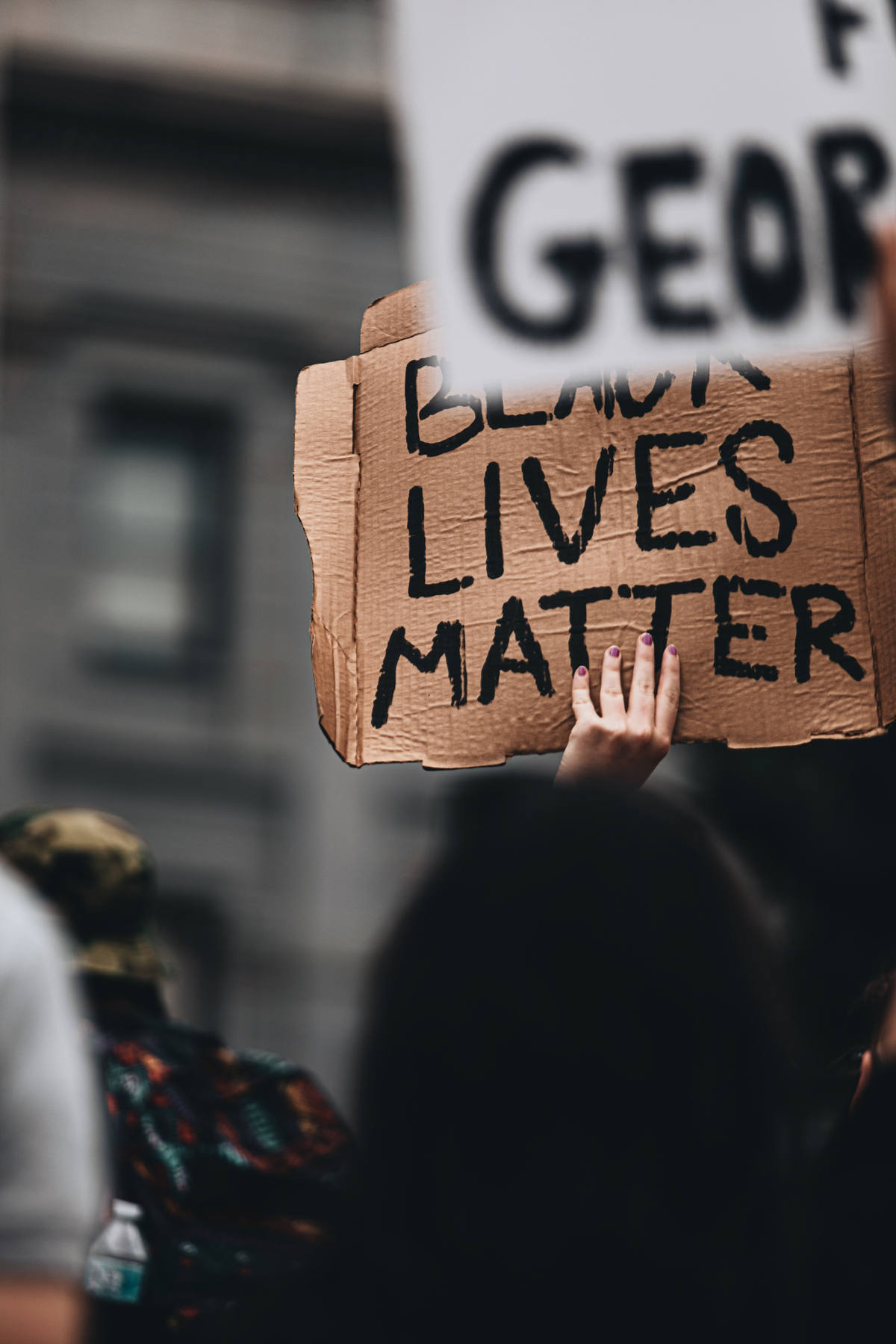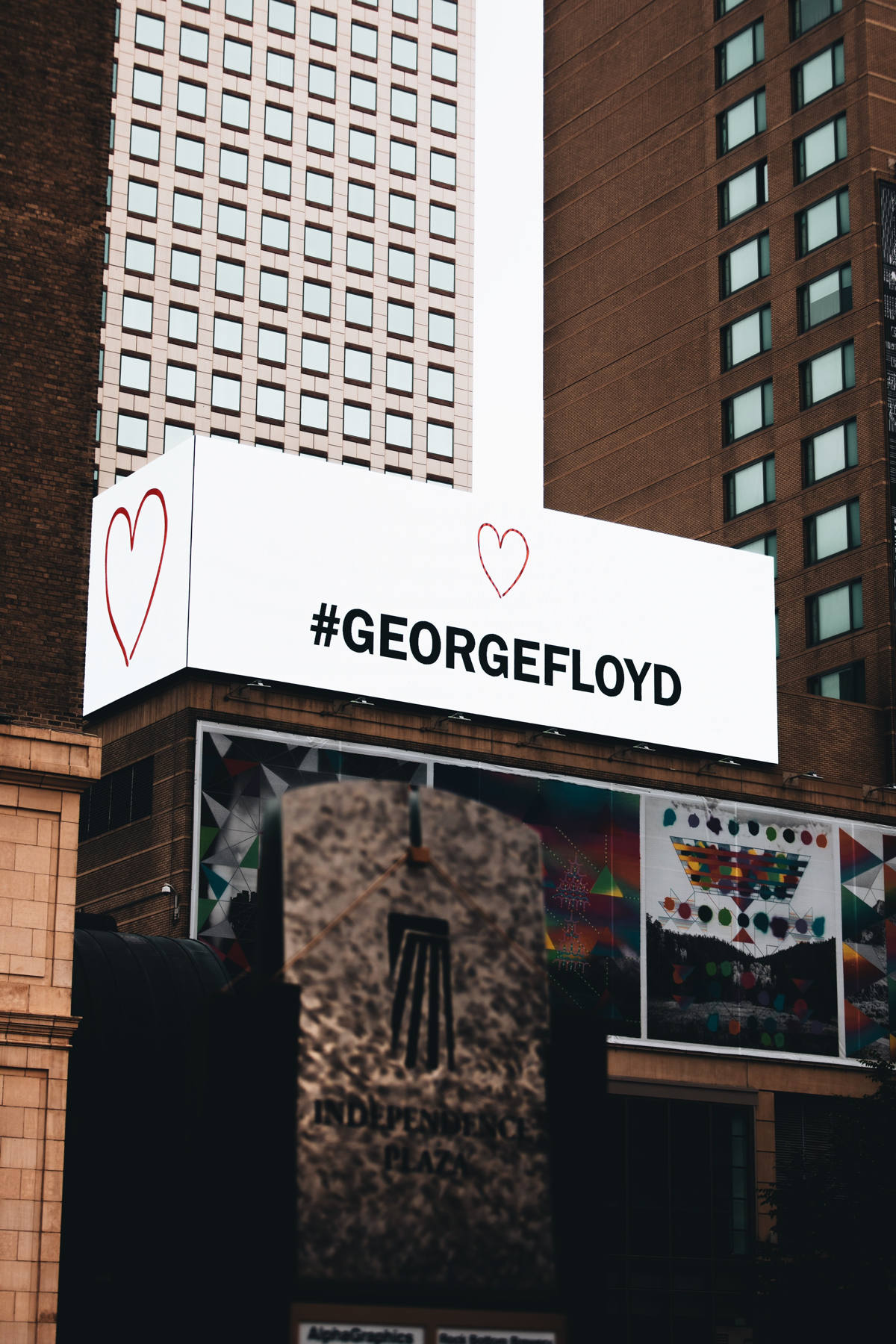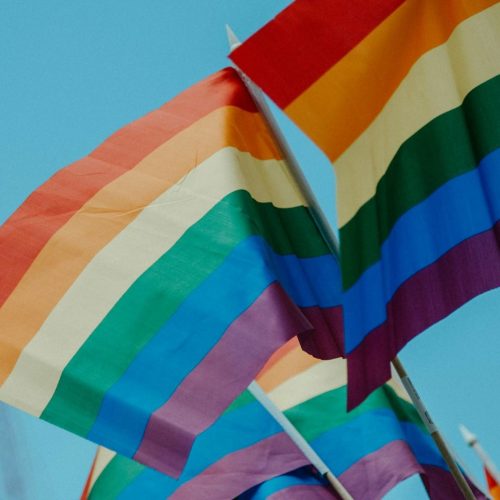George Floyd’s Story, the Black Lives Matter Movement, and How They’re Impacting Fashion
2020 has been an unprecedented year in terms of global unrest. On top of the global coronavirus pandemic, the United States is currently in upheaval due to the aftermath of George Floyd’s unjust death. There’s been a resurgence of the Black Lives Matter movement, and people are beginning to realize that racism reaches far beyond the confines of particular individuals or communities.
On May 25th, 42 year old George Floyd was killed by a police officer in Minneapolis, Minnesota. Floyd had purchased a pack of cigarettes from a grocery store, which the clerk claimed was counterfeit. When Floyd refused to give the cigarettes back to the clerk, he called the police, who arrived shortly after. When police officers put Floyd in handcuffs and tried to get him into a police car, he somehow ended up on the ground. One of the officers held his knee on the back of Floyd’s neck, who was laying face down and still handcuffed. Despite Floyd repeatedly saying he couldn’t breath and pleading for help, the office didn’t let up. Floyd died not long after.
BLACK LIVES MATTER
George Floyd’s death is not the first of its kind. There have been numerous unjust deaths of black people at the hands of police in the United States. In response to the acquittal of Trayvon Martin’s murder in 2013, the Black Lives Matter Movement started. It’s now an international movement that calls for an end to violence and systemic racism toward black people, and has expanded out of the U.S. into the UK and Canada.
What happened to George Floyd is representative of the many issues that go unaddressed everyday surrounding racism, social injustice, and discrimination. Floyd’s murder is just one example of how black people are treated differently and unfairly because of the color of their skin. The injustices facing diverse groups of people, but especially black people, go far beyond unfair treatment from the police. Racism, discrimination, and social injustice are everywhere, not just in the United States.

© Logan Weaver
Part of the problem is that many industries almost entirely ignore the issue of racism and discrimination, which allows it to keep happening. Despite what some might say, the fashion industry is a place where racism and a lack of diversity is prevalent. Companies and brands don’t typically speak out against racism, discriminatino, or social injustice, but George Flyod’s death and the subsequent protests have started to change that.
Brands are beginning to realize that what they say and what they stand for matter. Companies and brands have a power of influence, whether they recognize it or not. Adidas, Nike, and Michael Kors are just a few of the brands who’ve made statements in response to George Floyd’s death, and when big brands like these show they care, others are likely to follow suit.
On Instagram, it’s easy to see how luxury brands have been responding to the recent events. Through Gucci’s North America Changemakers Impact Fund, the company is donating to NAACP, Campaign Zero, and Know Your Rights Camp. Gucci also paused all operations in the U.S. on June 4th to give their employees a day of mourning. Other luxury brands like Dior have publicly stated that they don’t stand for any type of racism or violence.
The direct-to-consumer beauty brand Glossier announced its intention to donate $500,000 USD to BAME-owned beauty companies, and another $500,000 to racial injustice fighting organizations. The sustainable fashion brand Reformation also stated their intention to donate money to Black Lives Matter, Reclaim the Block, and Black Visions Collective. A quick social media search will show dozens of other brands that have also pledged donations. Brands are finally beginning to use the power of their voice to urge people to stand against racial injustice.
While it’s great that donations are being made to black-owned businesses and organizations, and that awareness about the severity of racial issues is going up, protesters have also been causing irreparable damage. They’ve been destroying shop fronts, and looters have been stealing products from stores. It’s not clear how many black, independent store owners have been affected by all of this, but even one person who’s negatively affected is one too many.

© Logan Weaver
DIVERSITY IN THE FASHION INDUSTRY
There’s simply not enough diversity or inclusion in the fashion industry. Even though the issue has slowly been getting better, it’s nowhere near where it should be. Racism and discrimination exist in the fashion industry, and these issues are coming to the forefront of people’s attention right now, especially in the United States. Adding black, asian, indigenous, or other non-white models to runways isn’t enough to solve the problem, and it never will be.
Global Fashion Agenda, a leadership forum for industry collaboration on fashion sustainability posted the following on LinkedIn on June 3rd: “It is all of our responsibility to take a stand against all forms of racism, discrimination and social injustice. At Global Fashion Agenda and Copenhagen Fashion Summit, we have not done enough to elevate these issues. We own that failure. We will take tangible steps to rectify this at the upcoming Summit and beyond — including elevating voices that have been historically disenfranchised and enhancing diversity within our organisation. Equity and equality are inextricably linked to sustainability. And the fashion industry is inextricably linked to Black culture.”
Everything that Global Fashion Agenda said is true. It’s everyone’s responsibility to stand against racism, discrimination, and social injustice, and many companies haven’t been doing enough. It’s very true that the fashion industry is linked to Black culture, and the industry needs to highlight and respect this link more frequently.
It’s uncertain what the future will look like, but if one thing’s certain, it’s that things will never be the same. Change is inevitable, especially positive change. George Floyd’s death is disheartening and inexcusable. While it’s sad that positive change is sometimes spurred by negative events, hopefully this tragedy will inspire people to make the changes that have been long overdue.

Jessy Humann lives and writes out of Spokane, Washington. When she's not writing about sustainable fashion why it's important, she loves to write poetry and do other types of creative writing. Her first children's book comes out next year.




